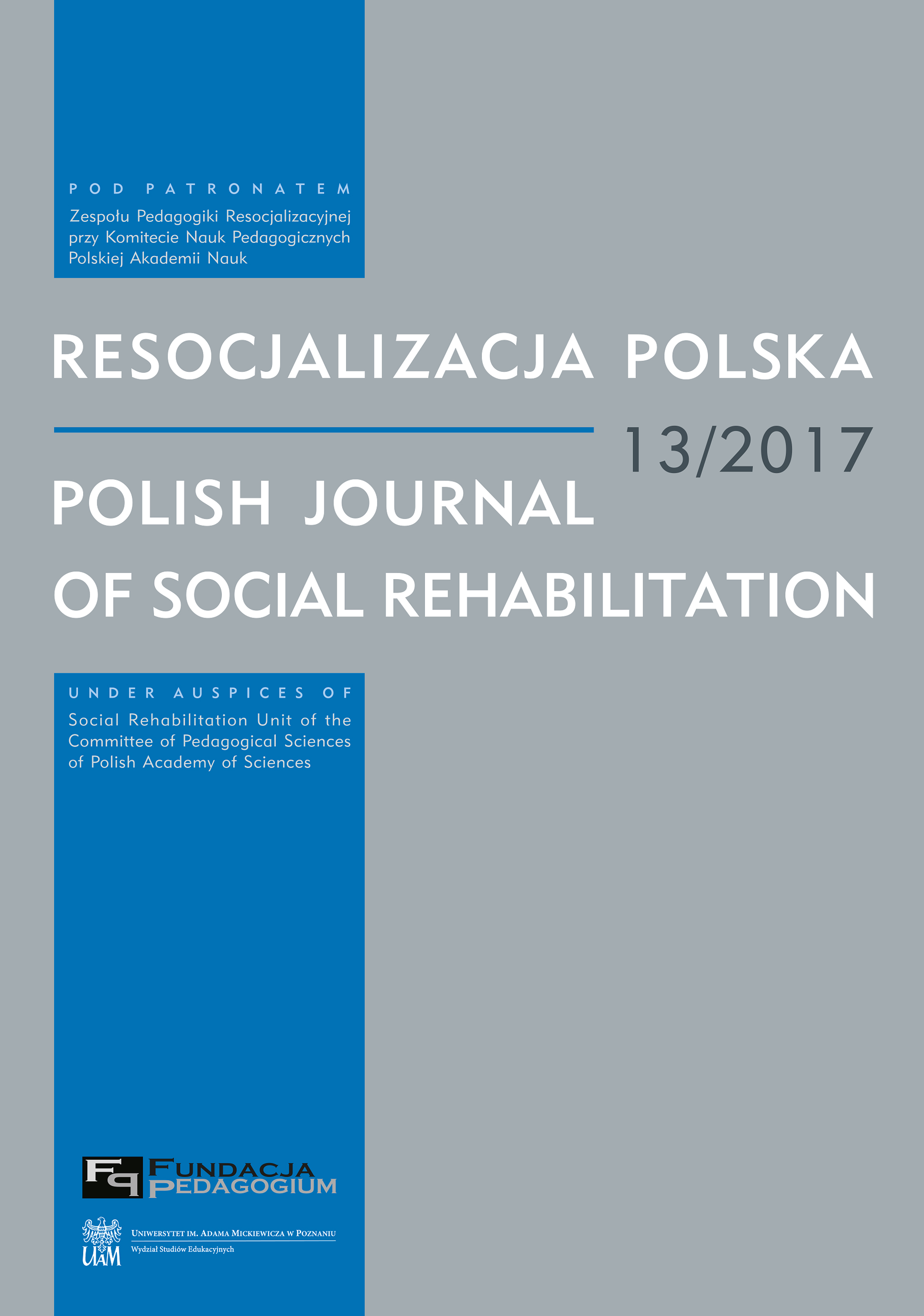Factors Affecting Self-Esteem Among Juveniles from Youth Educational Centers
Factors Affecting Self-Esteem Among Juveniles from Youth Educational Centers
Author(s): Karol Konaszewski, Tomasz SosnowskiSubject(s): Social Sciences, Sociology, Criminology
Published by: Fundacja Pedagogium
Keywords: Self-esteem; juveniles; Youth Educational Centers
Summary/Abstract: The article is an analysis of the results of the studies conducted among juveniles (boys and girls) in the case of whom the family court applied the educational means of placing them in the Youth Educational Centre. The aim of the study was to find out the correlations between self-esteem, personality traits and the environmental determinants (support factors and risk factors) among juveniles (boys and girls). The total of 481 juveniles staying in Youth Educational Centers participated in the study. Applied research tools: The Rosenberg Self Esteem Scale (SES), in the Polish adaptation by I. Dzwonkowska, M. Łaguna and K. Lachowicz-Tabaczek, NEO-FFI by P.T. Costa and R.R. McCrae was used to diagnose personality traits included in a popular five-factor model (it has been adapted into Polish by B. Zawadzki, J. Strelau, P. Szczepaniak, and M. Śliwińska) and a questionnaire concerning support factors and risk factors was constructed to measure environmental determinants. The analysis model showed that the significant predictors of self-esteem were neuroticism, extraversion, conscientiousness and negative relations at school. In girls group the significant predictors of self-esteem were neuroticism, conscientiousness, family support and negative relations at school, while in boys group the significant predictors of self-esteem were neuroticism, extraversion and negative relations at family.
Journal: Resocjalizacja Polska
- Issue Year: 13/2017
- Issue No: 1
- Page Range: 165-180
- Page Count: 16
- Language: English

